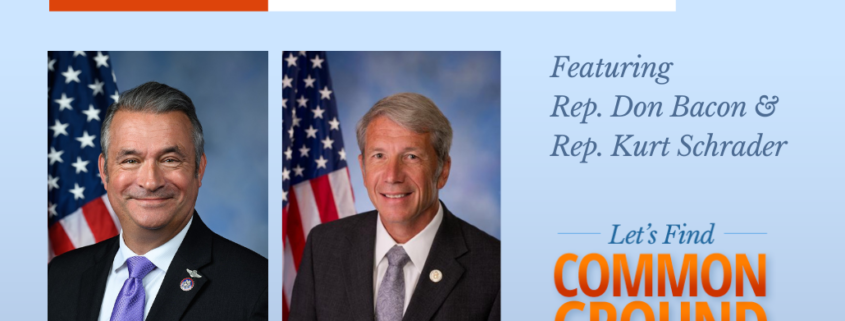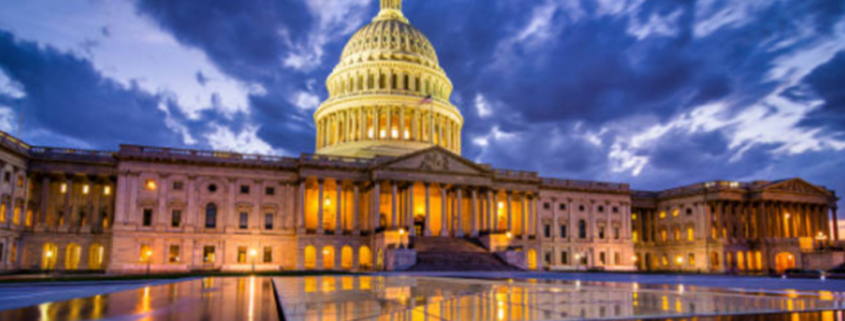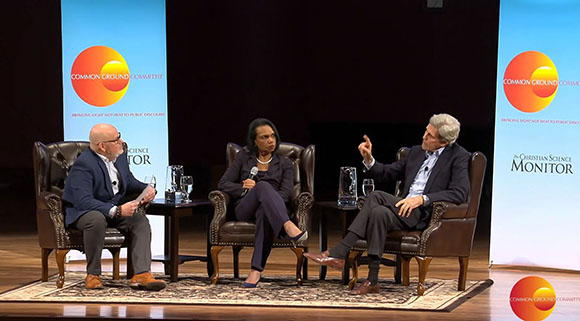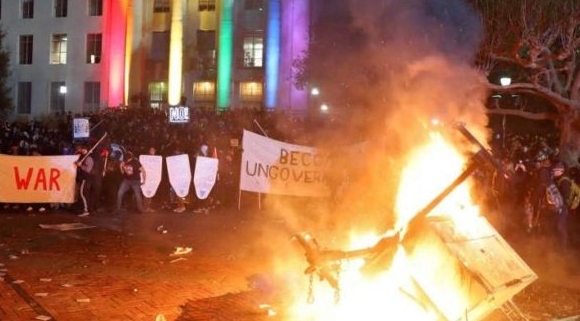How Problem Solvers Caucus Attacks Gridlock in Congress
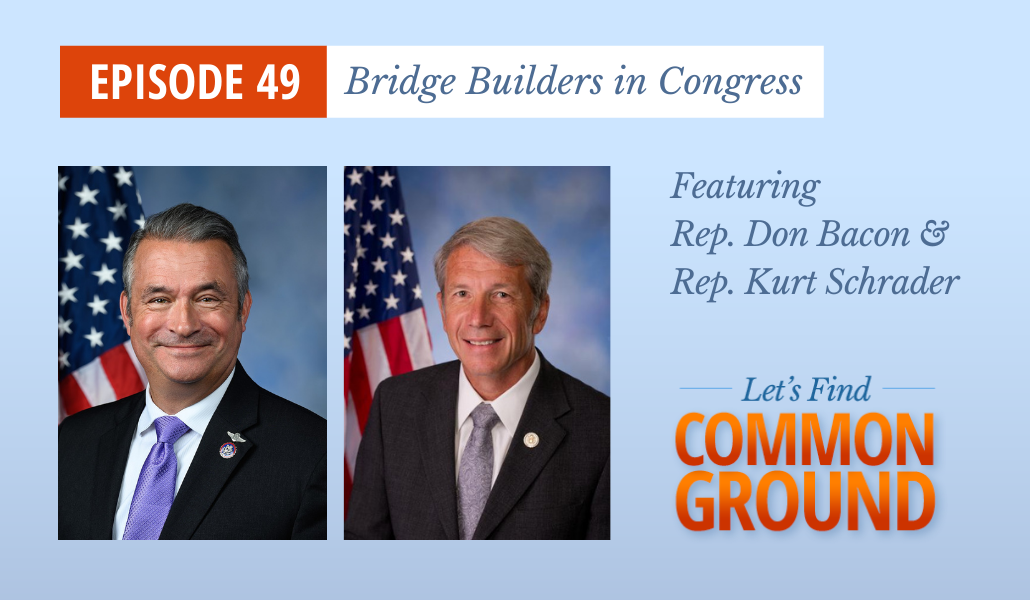
Subscribe to the Podcast
Is Congress as dysfunctional as it seems? Hear from two legislators in this candid conversation.
From the outside, Congress appears broken. Bills get bogged down in partisan fights, leaders openly smear each other, and animosity between members is at an all-time high. But our guests on today’s show demonstrate that if you look a little closer, you’ll find a group of dedicated politicians working together across the aisle to craft workable legislation and get things done.
Republican Congressman Don Bacon represents Nebraska’s 2nd District. Democrat Kurt Schrader represents Oregon’s 5th District. Each man is a member of the congressional Problem Solvers Caucus, a group equally split between Democrats and Republicans who are committed to finding common ground on key issues facing the U.S.
In this surprisingly candid conversation listeners get a peek behind the curtain at what’s really going on in Congress, how the infrastructure bill was passed into law, and the harmful effect the media has on Americans’ view of politics. On this episode of “Let’s Find Common Ground.”
Read the Episode Transcript
Ep 49 – How Problem Solvers Caucus Attacks Gridlock in Congress
Don Bacon
Growing up and working on a farm in Illinois, Congressman Don Bacon learned first-hand how the value of hard work and commitment contributes to the success of a small business. He moved from the family farm to attend Northern Illinois University, from which he graduated with a Bachelors of Political Science in 1984, the same year he married Angie, the love of his life. They have three sons, one daughter, and six grandchildren. One year later, he began his military career by joining the U.S. Air Force and serving nearly 30 years, ultimately retiring as a Brigadier General.
During his career in the Air Force, Congressman Bacon specialized in electronic warfare, intelligence, and reconnaissance. His career highlights include two tours as a Wing Commander, at Ramstein Airbase in Germany and Offutt Air Force Base in Bellevue, Nebraska; group command at Davis-Monthan Air Force Base in Arizona; squadron command in Arizona, and expeditionary squadron command in Iraq. In total, Rep. Bacon served 16 assignments including four deployments in the Middle East to include Iraq in 2007 to 2008 during Operation IRAQI FREEDOM.
Congressman Bacon’s military decorations include the Air Force Distinguished Service Medal, two Bronze Stars, two Legion of Merits, five Meritorious Service Medals, and the Aerial Achievement Medal. Additionally, he was selected as Europe’s top Air Force Wing Commander for his time at Ramstein Airbase, as well as recognized as a distinguished graduate of the Air Command and Staff College, Navigator-Electronic Warfare School, and Officer Intelligence School. Further, Congressman Bacon has earned two Masters Degrees, from the University of Phoenix in Arizona and the National War College in Washington D.C.
Upon his retirement from the Air Force in 2014, Congressman Bacon served as the military advisor to Congressman Jeff Fortenberry (NE-01), where he specialized in military affairs focusing on Offutt Air Force Base and the Nebraska National Guard. He also was an Assistant Professor at Bellevue University where he taught Undergraduate Leadership along with American Vision and Values (The Kirkpatrick Signature Series), until his 2016 election to Congress, representing Nebraska’s Second Congressional District.
Presently, Congressman Bacon serves on two committees within the House of Representatives: the House Armed Services Committee, and the House Agricultural Committee.
Kurt Schrader
Congressman Kurt Schrader is currently serving his seventh term in the United States House of Representatives. He represents Oregon’s 5th Congressional District, which includes all of Marion, Polk, Lincoln and Tillamook Counties as well as the bulk of Clackamas and small portions of Multnomah and Benton Counties. Before being elected to Congress, Schrader, a farmer and veterinarian for more than thirty years, established and managed the Clackamas County Veterinary Clinic in Oregon City and operated his farm where he grew and sold organic fruit and vegetables.
In 1996, Congressman Schrader was elected to the Oregon State House of Representatives. There he served as a member of the Joint Ways & Means Committee. Schrader was one of five legislators asked by their peers to guide Oregon through the budget crisis of 2001-2002. Schrader was elected to the Oregon State Senate in 2003 and was immediately appointed to chair the Joint Ways & Means Committee. He continued to serve in that capacity until he was elected to U.S. Congress in 2008.
Congressman Schrader attended Cornell University where he received his BA in Government in 1973. He received his veterinary degree from the University of Illinois in 1977.
Congressman Schrader currently serves as a member of the House Committee on Energy and Commerce (E&C), which oversees a wide portfolio of issues ranging from health care to the environment. Prior to joining E&C, Congressman Schrader served on the House Committee on Agriculture, where he served on the Farm Bill Conference Committee that successfully passed a five-year farm bill, the House Committee on Small Business and House Budget Committee. In the 117th Congress, Congressman Schrader serves on the Energy and Commerce Subcommittee on Health, the Subcommittee on Energy, and the Subcommittee on Communications and Technology.
Schrader is a member of the Blue Dog Coalition, New Democrat Coalition, and the only bipartisan working group in the House, the Problem Solvers Caucus.
Want to hear more? Check out our podcast page to see all the discussions!

